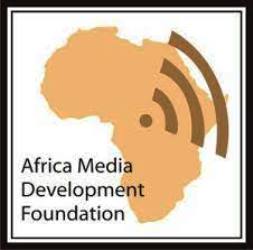The Africa Media Development Foundation (AMDF) recently held its annual Bagauda Kaltho Media Lecture, drawing participants from across Africa for a thoughtful exchange on the state of press freedom on the continent. The lecture, named in honour of James Bagauda Kaltho—a brave Nigerian investigative journalist who mysteriously disappeared in 1996—served as both a tribute and a call to action.
The event, which took place virtually, brought together a diverse group of media professionals, academics, and civil society advocates. At the heart of the discussion was a paper titled “Censorship and State Control: Press Freedom is Severely Restricted”, delivered by Dr. Samson Omosotomhe, a respected scholar from Ambrose Alli University in Ekpoma, Edo State.
Speaking with a tone of urgency, Dr. Omosotomhe lamented the increasing restrictions on journalists in Africa, stating, “Though the media has made some progress, draconian laws and government actions are eroding those gains daily.” His words hit home for many, as the fight for a free press continues to be stifled by political repression, authoritarian regimes, and censorship.
Among the participants were journalists from Kenya, South Sudan, and Somalia, each offering a sobering glimpse into their struggles. They pointed out how media outlets, often dependent on advertising revenue from corporate interests, face a more insidious form of censorship—a corporate influence that curtails investigative reporting when powerful businesses are involved.
In a moment of shared reflection, these journalists spoke not only of personal challenges but also of the collective burden felt by those who strive to deliver the truth in environments that are hostile to free expression.
The lecture was not just a platform for airing grievances, but also one for solutions. A clear message emerged: improving press freedom in Africa requires a united front. There were resounding calls for stronger collaboration between journalists, civil society, and media organizations, all aimed at pushing back against the shrinking space for free expression.
One of the most poignant recommendations was the need for legal support for journalists, particularly those facing persecution for their work. Participants advocated for pro-bono legal services to defend press freedom, as well as reforms to defamation and anti-terrorism laws that often serve as tools for silencing critics.
The discussion also emphasized the importance of safety nets for journalists, suggesting emergency funds and mental health support for those facing harassment, imprisonment, or threats of violence. As one participant noted, “A journalist’s work is never more dangerous than when the truth becomes inconvenient to those in power.”
Towards the end of the session, attention turned to Nigeria, where participants called on Attorney General Lateef Fagbemi (SAN) to act on a 2024 Federal High Court ruling that called for reopening investigations into the killings of journalists, including Bagauda Kaltho. Many felt that justice for Kaltho and other slain journalists is long overdue and would serve as a powerful statement that press freedom must be protected at all costs.
The event concluded with a renewed sense of purpose. Press freedom advocates from all corners of the continent left the virtual lecture with a deeper commitment to continue their work, emboldened by the knowledge that they are not alone in their struggles.
This year’s Bagauda Kaltho Media Lecture reminded everyone that journalism in Africa is not just a profession—it’s a fight for truth, democracy, and, often, survival. Through this event, AMDF keeps the memory of Kaltho alive, while rallying support for a more independent and fearless press across the continent.


